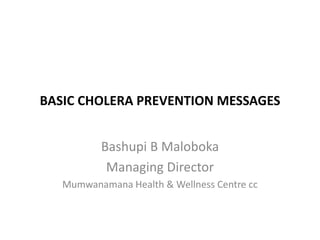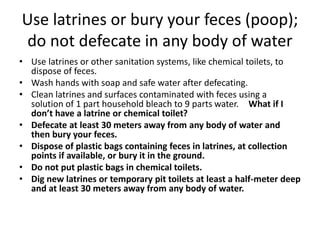Cholera prevention involves drinking and using safe water, washing hands often with soap and safe water, properly disposing of human waste away from water sources, thoroughly cooking food and peeling fruits and vegetables, and cleaning up safely away from water sources. Key actions include boiling or treating water, washing hands before eating or after using the bathroom, using latrines and burying feces away from water, cooking food thoroughly and eating it hot, and bathing and washing clothes away from drinking water sources.





